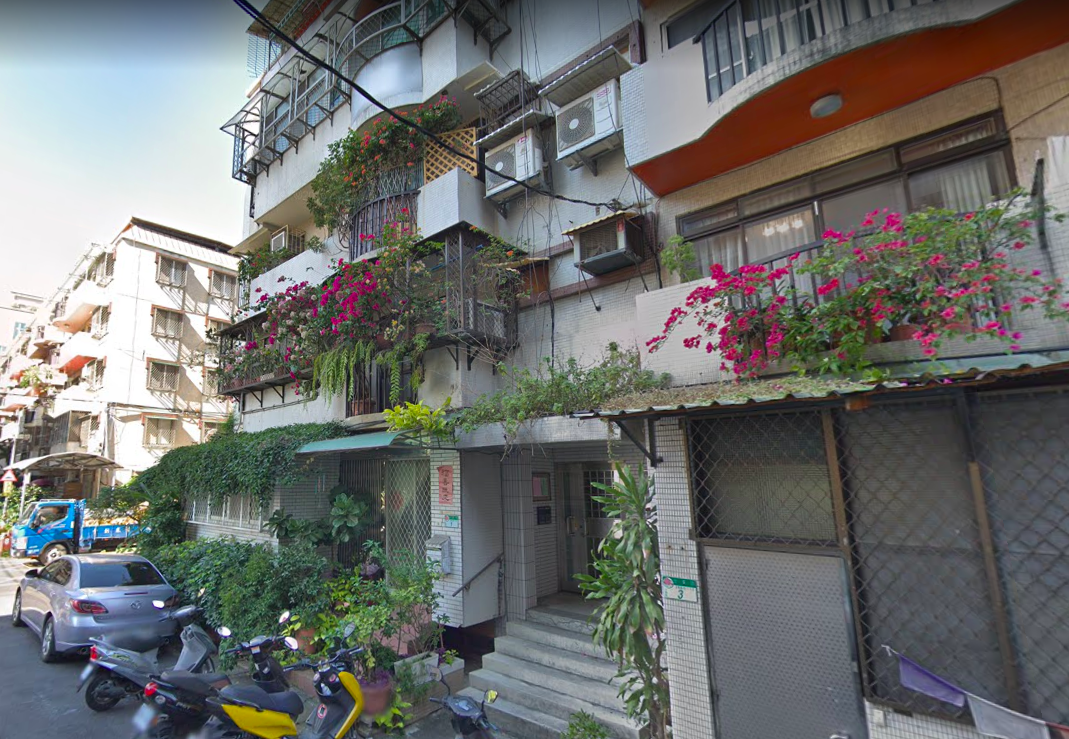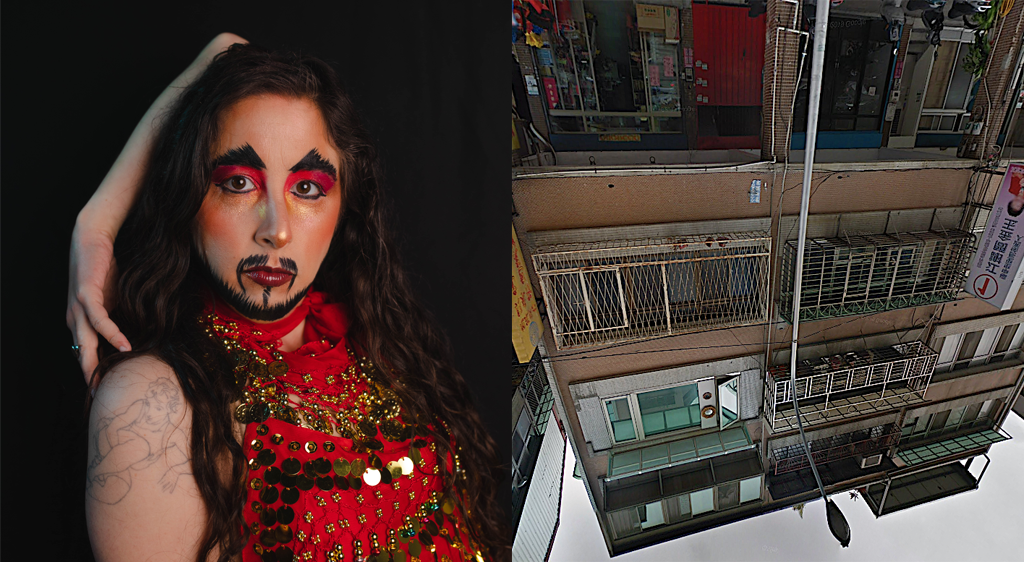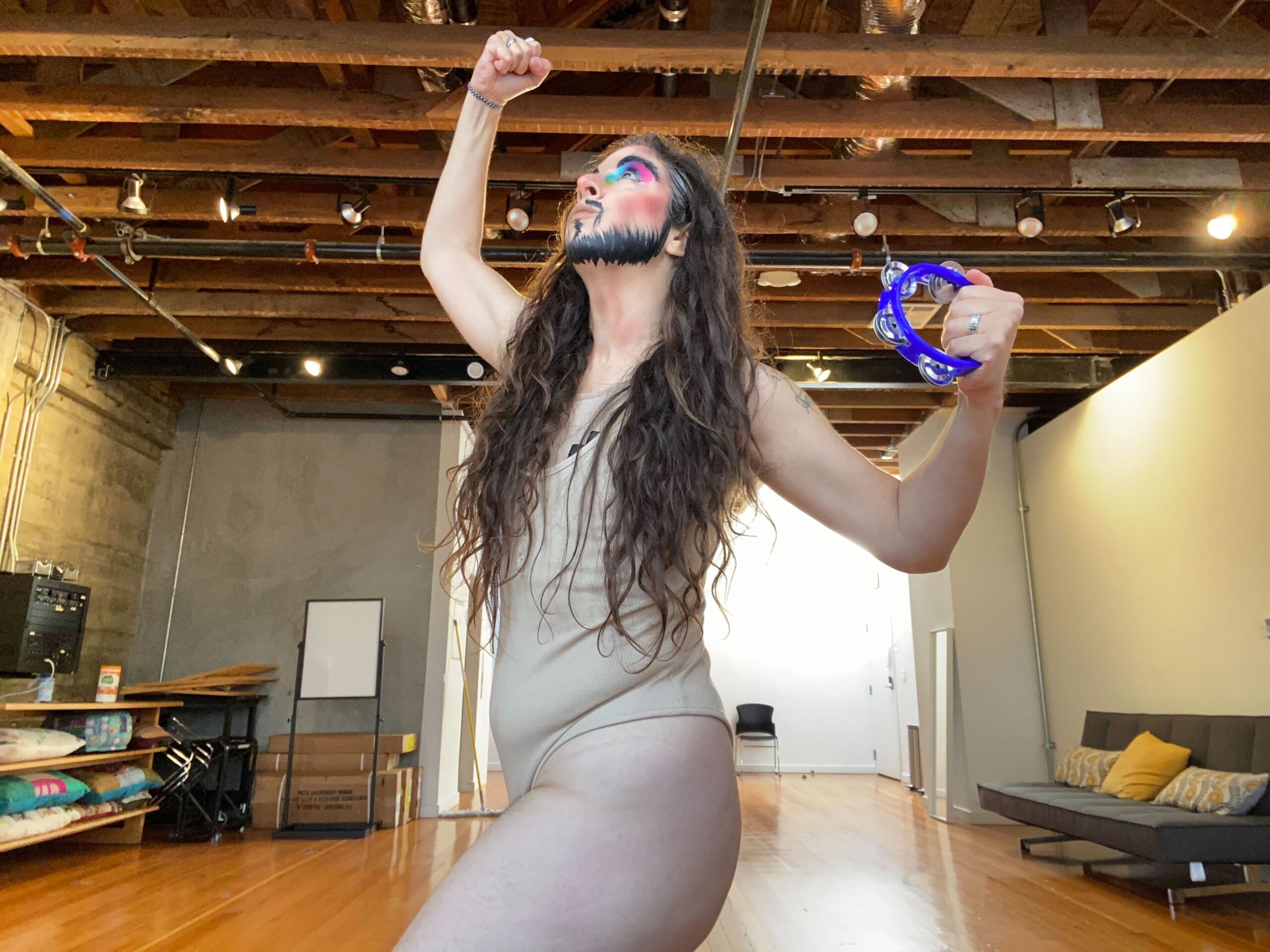I spent the last three months in Europe and India, traveling and performing Nautanki to diverse audiences. I also worked with my father on Nautanki Mission Suhani to expand the script and add new scenes for our performance at CounterPULSE this October.
I first traveled to Paris, where I stayed at the Théâtre du Soleil (http://www.theatre-du-soleil.fr), a theater founded by the famous French director Ariane Mnouchkine. I watched their latest production, Les Naufragés du Fol Espoirs, and thoroughly enjoyed it. During my stay, I trained actors at the theater in Nautanki. Along with them, I gave a presentation about the Nautanki tradition and performed scenes from Nautanki Sultana Daku, which I had directed for numerous shows in the Bay Area in 2008 and 2009. Sultana Daku depicts the life of a Robinhood-like bandit who plagued the rich and helped the poor and became a symbol of resistance against the British in the early 20th century. The reaction to our performance was overwhelming. All the actors at the Théâtre du Soleil who watched the performance really liked the Nautanki form and wished that I should come with my full Indian Nautanki troupe to perform in Paris. I also informed them about my upcoming production of Mission Suhani at CounterPULSE, which is based on a contemporary social issue.
In the Théâtre du Soleil, everyone talks, walks, and lives theater. Not only that, but all the people in the theater collaborate to create new performances, which means that they have a lot of dialogue about any new piece they want to create. This ambience at the Théâtre du Soleil inspired me to think in new ways about how to make my upcoming Nautanki production Mission Suhani longer and more effective.
I first met Ariane Mnouchkine while on a research trip to Delhi, India, during which I participated in a seminar sponsored by the Asian Heritage Foundation. The seminar focused on the situation of traditional art forms and artists in the contemporary global world. I was invited to talk about improving the living conditions of community performing artists, artisans, and craftsmen in South Asia, and to give a Nautanki performance. At the seminar, I interacted with Ariane Mnouchkine and several other top scholars, performers, and intellectuals from South Asia, Europe and America. Ariane invited me to visit her in Paris to perform and collaborate with her at the Théâtre du Soleil.

Devendra Sharma participating in a seminar sponsored by the Asian Heritage Foundation in Delhi, India along with the world-famous French theater director Ariane Mnouchkine and renowned Indian cinema scriptwriter Shama Zaidi
After my visit to the Théâtre du Soleil in Paris, I traveled to India. As always, my India stay turned out to be wonderfully enjoyable. The scents, food, and sensibilities of India enrich my soul so much and inspire me artistically. The most amazing part of my India stay was to work, perform, and learn from my father, Pundit Ram Dayal Sharma, who is one of the most renowned Nautanki artists and gurus in India. Every day, I learned little things from him that helped me understand the nuances of tradition and elements of experimentation in Nautanki more and more. One of the highlights of my India stay was traveling with my father to Bombay to perform in the annual National Theatre Festival at Nehru Center. This was a very prestigious event where only select renowned theater groups were invited. My father and I performed as two of the main characters in the world-renowned folk play Agra Bazaar, written and directed by the late Habib Tanvir. Eight hundred people came to watch the performance, and it was a very enjoyable experience.
Throughout the summer, I worked very closely with my father to develop the Mission Suhani script in much more detail than its previous version, at the levels of both plot and characterization. Several very helpful suggestions from the audience during previous shows of Mission Suhani at CounterPULSE and at UC Berkeley inspired and guided our script development. For instance, one of the helpful suggestions that came from the audience was that the relationship between Suhani and Devesh (when Suhani travels to the US to find her husband) could be developed more and clarified in much more detail. Of course, in the previous avatar of Mission Suhani, we had to restrain ourselves to a half hour time limit so we could not show the relationship between Suhani and Devesh in detail. Now, since we have more time for the performance, we worked to bring more nuance into the interaction between Suhani and Devesh. Another wonderful audience suggestion was that Suhani could take more initiative in how she interprets her relationship with Devesh. Using these suggestions, my father and I created a new scene between Suhani and Devesh where Suhani’s strong character becomes even stronger and more empowered.
Another exciting feature of the new script that my father and I added is a spicy, entertaining, as well as meaningful song which Suhani sings when she remembers her husband and longs to meet him while she is waiting for him in India. In a very simple way, this song captures the emotions of a newlywed bride who is naïve and idealistic in her love, oblivious of the fact that there is a cruel world out there. The song also provides a contrast between the two Suhanis—the innocent Suhani in India, before she realizes that she has been cheated by her husband, and the tough Suhani that emerges after this realization. I hope that all of these additions and enhancements will enrich the performance at many levels and make the new avatar of Mission Suhani even more appealing, entertaining, and thought-provoking for audience members. Working on the Mission Suhani script with my father has been such an exciting experience for me, and I really look forward to the first Work-in-Progress show to get everybody’s feedback on this fascinating and interesting work.
Share This!
More Good Stuff
Unsettled/Soiled Group is a group of East, Southeast, and South Asian diasporic movers, makers, and settlers on Ramaytush and Chochenyo Ohlone land. Unsettled/Soiled Group is led by June Yuen Ting, one of CounterPulse's 2022 ARC Performing Diaspora artists and will debut Dwelling for Unsettling alongside VERA!'s Try, Hye!, Thursday through Saturday, December 8-10 & 15-17, 2022
Try, Hye! by Vera Hannush/VERA! & Dwelling for Unsettling by Unsettled/Soiled Group December 8-10 & 15-17, 2022 // 8PM PT // 80 Turk St, SF
VERA! (they/them) is a queer Armenian American drag king, dancer, and community activist. They are one of CounterPulse's 2022 ARC Performing Diaspora artists and will debut Try, Hye! alongside Unsettled/Soiled Group's Dwelling for Unsettling, Thursday through Saturday, December 8-10 & 15-17, 2022




